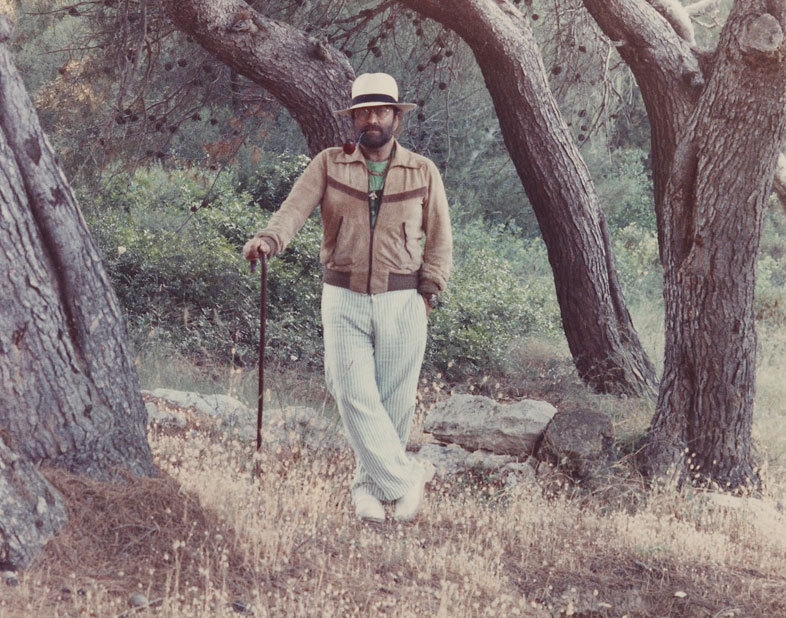Ghirri di musica - 23 October 2008 - 23 January 2009
A book presaged Like a thousand other books, Ghirri’s book was never nished. A trace of it remains in a layout left behind by Luigi in the family home in Ronococesi when he suddenly went away, never to return. It would have been the natural refuge and generous custodian of so many snapshots, so many gazes, observations and “readings” made, over the course of the years, in different places, following his singer friend; occasionally accompanying and giving himself over – this man who had wanted to live, love and dream attached to his land, within the borders marked by the great river – to the erratic life that the pathways of music led his friend to lead, passing through the neighborhoods of the world. It would have been a story made up of images: each necessary to the others, as the words of a sentence or sentences are likewise inseparable in composing a text; for Ghirri, it would have been, once again, the most authentic and profound “justi cation” for photography and, at the same time, his most discreet and spontaneous dedication to the value of a friendship. That book was never nished; but the photographs remained, and the friendship was maintained as well, intact and if anything enriched by the nostalgia of those memories, so much so that Dalla wanted to offer a testimonial of it, pulling out of drawers and gathering together some of the many images shot by Ghirri during the course of their travels or sojourns and string them together to make up a book that discretely, lovingly writes another story, most likely different from the one their creator would have composed, but enriched by a further addition of meaning, like that produced by another reading or another point of view. A point of view, xed in a snapshot, that opens the sequence of images of this volume like an initial letter and offers us the upside down portrait of the singer’s face, through the camera lens. Backwards, the observed changes his guise. He becomes a spectator and can look at a landscape, an ob- ject, an image of himself, with an amazement comparable to that which the photographer sought to feel, exalt and nally consign to us through his work; so that every appearance and action, especially the most habitual and banal ones, could offer themselves to our gaze tinted in colors drawn from the palette of wonder. Seen though that gaze, profoundly, rmly imposed on the author’s sensibility, the photographic plates of the book begin to ow like so many images, familiar and unexpectedly surprising, each induc- ing us to linger and to look for the linguistic and imaginative dynamics that produced the result, so that we are better equipped to be able to fully comprehend the meaning of a key declaration Ghirri made to clarify the sense of his work when he wrote: “Seeking a photograph that indicates not only new methods of seeing, new visual alphabets, but above all a photograph that presupposes a state of necessity. Seeking a photograph that establishes new dialectical relationships between the artist and the outside world, new paths, new concepts, new ideas for entering into rapport with the world, looking for adequate modes of representation of it, ways to offer images and gures, so that photographing the world may also be a way of comprehending it.” It is in virtue of what Ghirri calls and individuates as state of necessity that inside and outside, near and far, full and empty, night and day and every other foundational element from which the visual result orig- inates or that contributes to its de nition are selected, as in the series of photographs that are the object of this book, for the purpose of designing the architecture and movements of a story set within the frame of a suspended time. This special quality lends Ghirri’s photography that miraculous power to translate the most everyday and banal semblances of the world into wondrous revelations, achieving exalted and sometimes dizzyingly poetic results; like the striking one – to draw an example just from the limited an- thology of this catalogue – in the pair of facing plates depicting Lucio Dalla in New York in 1986. In one of the photographs he is seen from behind, buying a record in a shop, re ected in his own shadow, and in the second which standing in front of an aquarium. The diptych is an exemplary testimony, in an excit- ing juxtaposition of concealment and revelation and a subterranean circulation of iconographic binders, of the bounty of a reading of Ghirri’s work, offered by one of his most astute interpreters and best friend, Gianni Celati, who wrote: “He had the idea that every image recalls another one, because there is no unique, original image. Every image bears within it the traces of a recognition of something else, of other images, photos, visions, apparitions...” I believe that Lucio Dalla also shares this opinion, and is willing to subscribe to it, perhaps accepting a possible extension of it.
Lucio Dalla
Ah... if the soul had eyes...
Ah... if the soul had eyes...! – Luigi and I said, laughing, listening to music on vinyl or at a concert, be- tween a sneeze, an extrasystole, an “Even if I die right now, I’ll die happy” at the Bob Dylan concert in Naples. “Can you imagine how much less trouble the ‘tubes’ that carry tears to the eye fountains would have?” he said to me. That was because Luigi, when he was born in ‘43 (the same year as me), was born with music in his bones. Every time he heard even just a bell ring, or a dog barking in the night, as well as at one of my concerts or Bob Dylan’s (his great love), he got the idea for a photo, or a tear came to his eye, or he had a little fart of physical satisfaction, like a cigarette after a coffee, and so forth... Luigi and his wife Paola have often traveled with me around the world, and music not only made us enjoy our time together, but was the excuse that made us travel. Paris for a week at the Olympia, New York, Boston at Berklee College, Moscow, etc., always with ears open and camera in hand and a little sweat in his heart. In the exhibition you’re looking at, there are some of the more than 10,000 photos he conceived and took during our travels, but above all, you see him with me, and that moves me a bit, how every time I’m on stage about to start a concert and I can’t help but thinking of him, too. Ciao Luis... life is good, eh...
Paola Bergonzoni Ghirri
If I am reborn, I just want to play and sing, and that’s all
They ask me to tell why I was there in those days, with them, with all of them. In the recording studios, traveling on the highways, at the concerts, in America, at the seaside, on the sea, in the sea. All of them, seen only on TV, at the cinema, their voices, records, their songs which, like photographs, implacable, make you remember. But I’m not so sure any more that I want to remember, because afterwards nostalgia comes along, and that’s no use to anyone. And then to go a bit further I search my brain for little pieces of memories that whirl like the popcorn in the giant plastic spheres at the carnival. And that’s where Luigi and I are, in front of the “Death Spin” tent. Luigi sitting on his motorcycle with a leather helmet, me standing beside him in a shiny costume with frayed shnet stockings and feathers on my head. Lucio is telling us this is just how he imagined we’d be as old people. He really is a visionary, I think, but I don’t say it. Rings, necklaces, amulets, hats, white and black keys. Music. I told Lucio he has lovely hands but he doesnít believe me, and neither does the gas station attendant at Bevano on the highway who sees Lucio, Gianni, Luigi and me and says, “There’s Caselli too!” – but I’m not Caterina Caselli! We listen to his songs in the car, broadcast on the radio, and we’re sitting there next to him, and I think it’s such a strange thing. We lay all the photos out on the black Fonoprint carpet, look at them together and laugh, satis ed, be- cause it was all great. At night, in Indian- le with a ashlight, walking through the Tremiti brush to go listen to the song of the Diomedee, an Irish setter follows us, my back feels cold, my hair is wet and I’m a little scared. Luca and I are washing the boat with fresh water, Luigi and Lucio are talking about Adorno and Savinio, thank goodness Giacomo is making us dinner, something good for sure. We are going into the May ower Hotel and Stefania Sandrelli is coming out, they hug, she and he, and she’s beautiful in her white shirt, and young. We are in the dressing rooms of the Olympia theater. Lucio starts singing on 4 Marzo, and Renzo says he can’t remember how many times he’s heard him. I look at a doorjamb and I think – who knows if Edith Piaf once looked at that very same point. Tonight Luigi went overboard with Dylan this, Dylan that, nobody could take it anymore. Even Gino Castaldo kept nodding yeah, yeah, but I think he’d already stopped listening to him a good while be- fore. Now I’m looking out the window. It’s a quarter past midnight and the streets are deserted. NYC by night. A menagerie of tigers is crossing Fifth Avenue. Maybe it’s from FAO Schwartz, because it’s here nearby, there’d be nothing strange about that; just look at the toilet seat in the bathroom of this room, it’s mother- of-pearl. In Sorrento, on the other hand, everything is strange. In the vast lobby of the hotel there’s a piano and a sleepy barman, lots of red-velvet armchairs scattered about like stars in the sky. A gigantic Christmas tree. And Oliver Reed, also all in red, teetering towards us with a glass of whiskey in his hand. It seems like we’re in America. Everyone in the theater is looking for Lucio. Nobody knows where he is, and shooting has to start on the “Caruso” video. I nd him. He’s asleep on the oor between one row of seats and another. He falls asleep everywhere and sleeps very little. I watch his regular breathing for a moment and then I decide to wake him up, but I’m sorry to do it. 18 The sea of Palmarola is still and bream are swimming with us. Luigi doesn’t swim very well- doing the breast-stroke he barely moves his arms, he closes his mouth and puffs out his cheeks because he thinks he’ll oat better, but he always stays in the same place. Then he gets back on the boat and takes photo- graphs of us. Tonight when Lucio started to sing “Caruso”, there were already some people in the front row who were visibly moved. Lucio answers the telephone and changes his voice so he won’t be recognized; on the other end someone fell for it and hung up. Now he’s looking at Luigi, who’s silently setting up the camera on the tripod. A swimming pool is be- tween them. I see that Luigi is looking for Lucio’s re ection mirrored in the water, but I don’t think he can nd it. They look at each other, they’re smoking, then they start talking at the same time. We’re in church in Roncocesi, Lucio is holding Adele in his arms. Luigi is little like them, too. Don Gianfranco talks to us about God and the Devil. I don’t know if God has anything to do with us, but I’m sure that the Devil never will. I read him the text over the phone and Lucio tells me to add now – we’re oat akes in a glass jar and in a little while we’ll be popcorn too.
Stiamo entrando al Mayflower Hotel e sta uscendo Stefania Sandrelli, si abbracciano, lei e lui, e lei è bellissima nella sua camicia candida, e giovane. Siamo nei camerini dell’Olympia. Lucio inizia a cantare 4 March e Renzo dice che non può ricordare tutte le volte che l’ha ascoltata. Guardo lo stipite di una porta e penso – chissà se la Piaff ha guardato una volta proprio quel punto lì.
Roncocesi, 14 September 2008
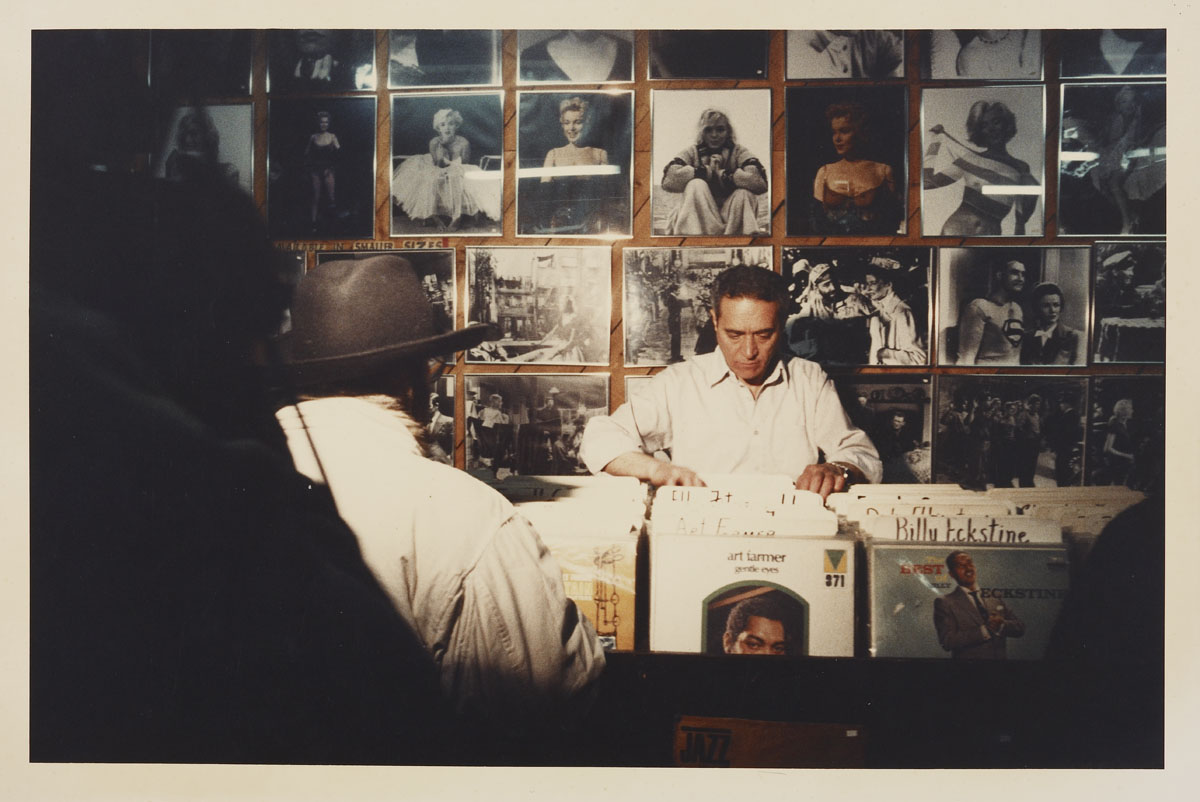


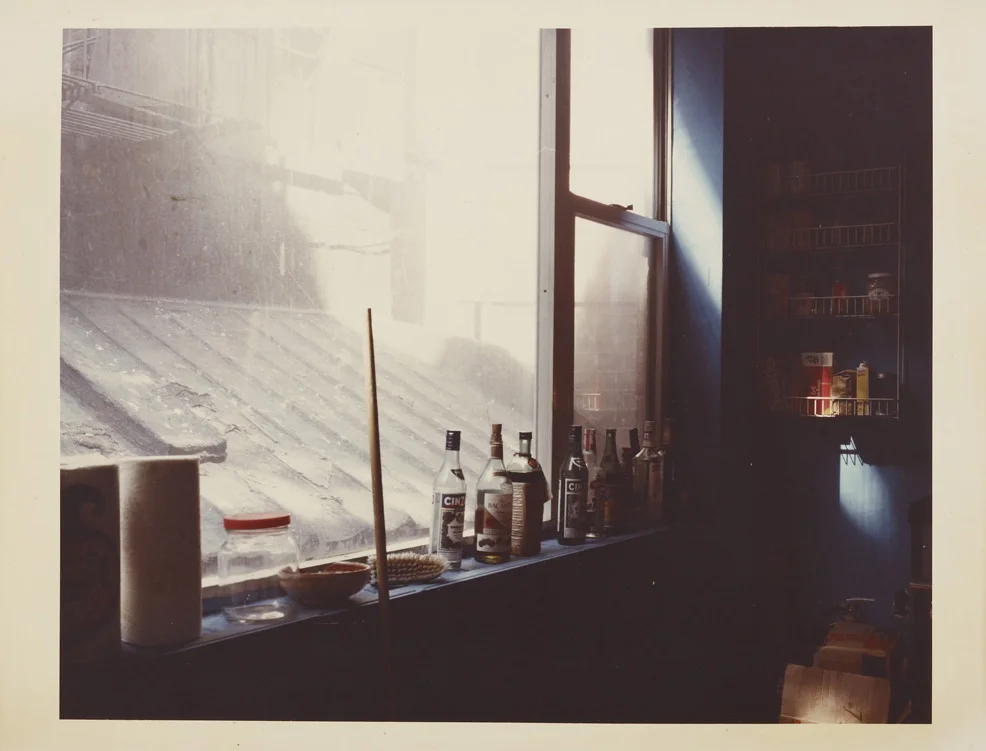
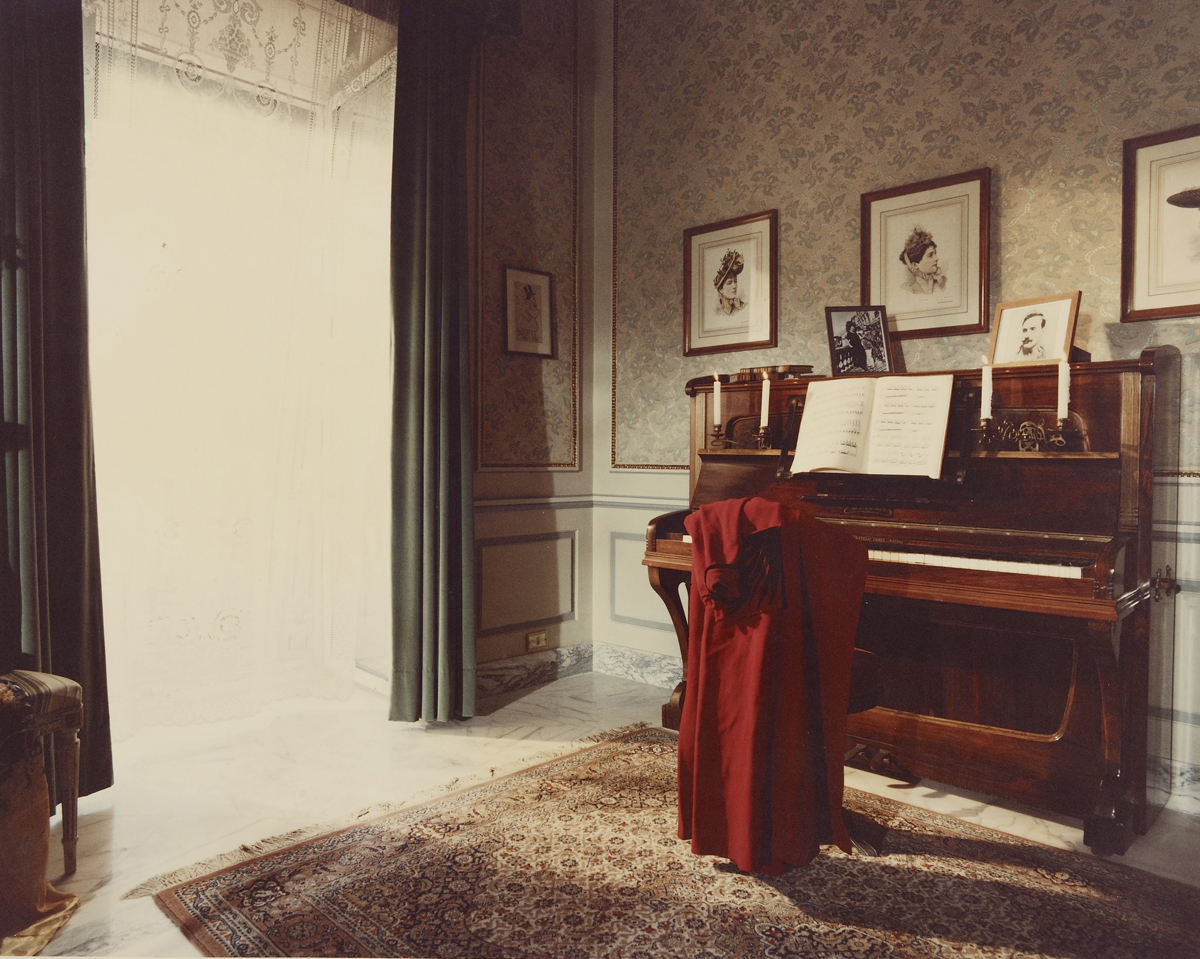
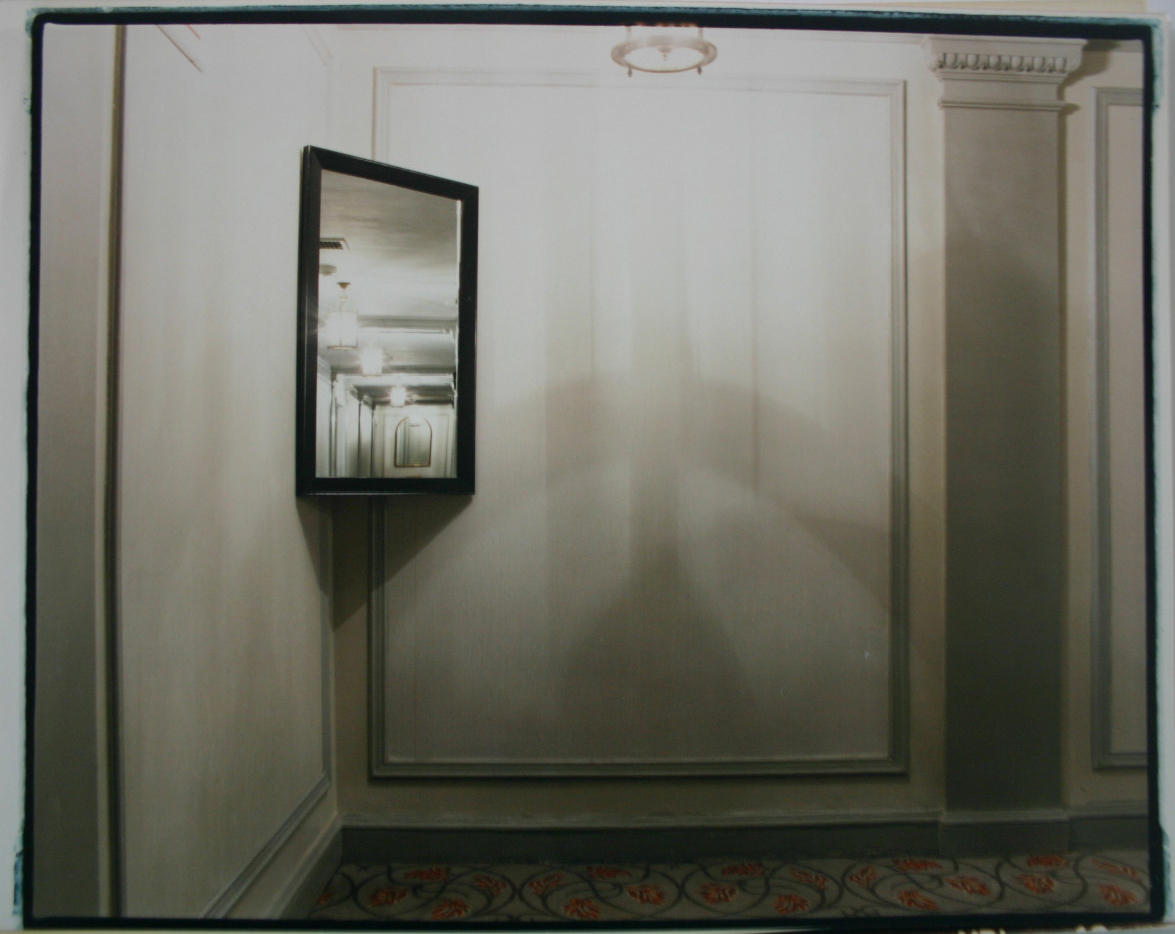
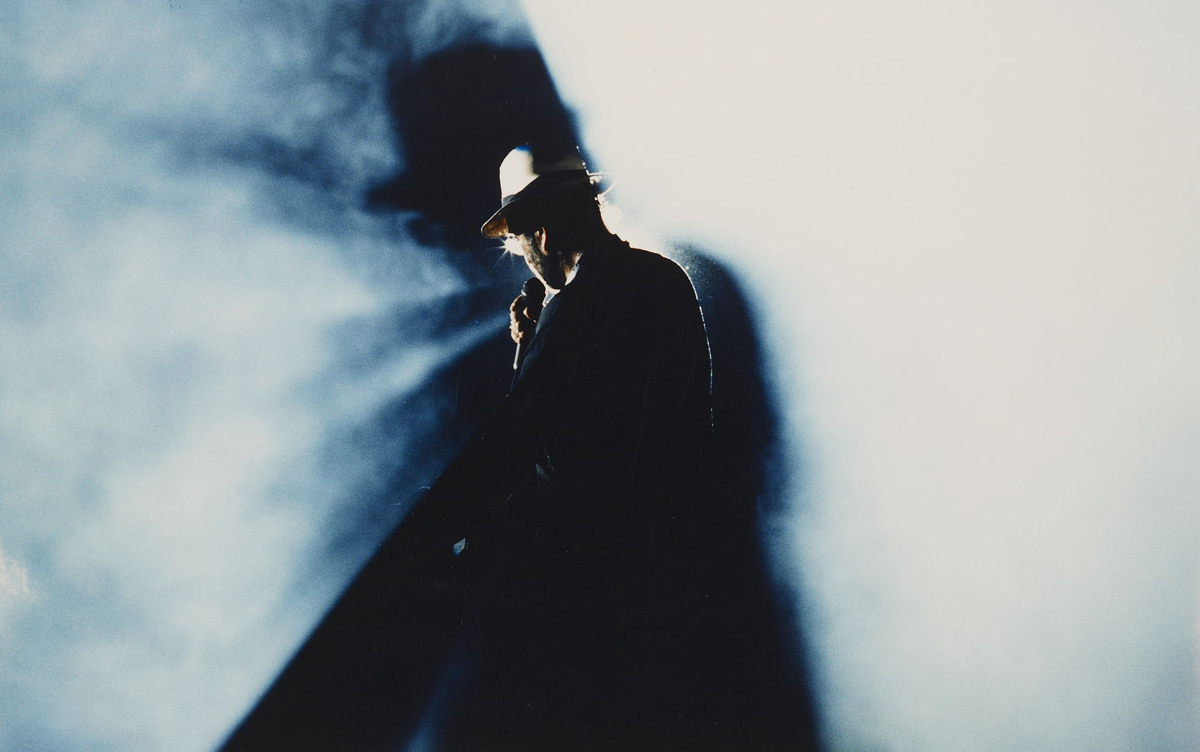
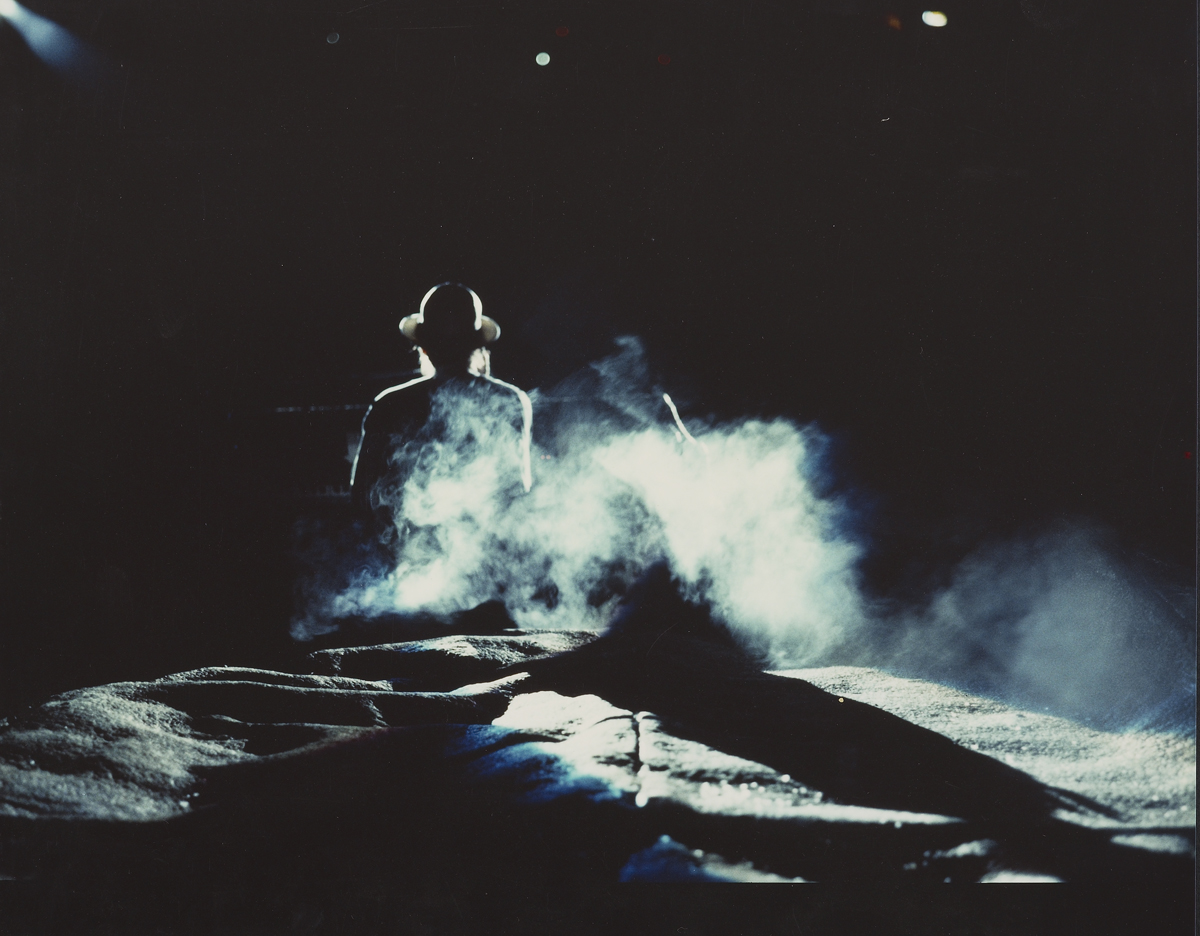
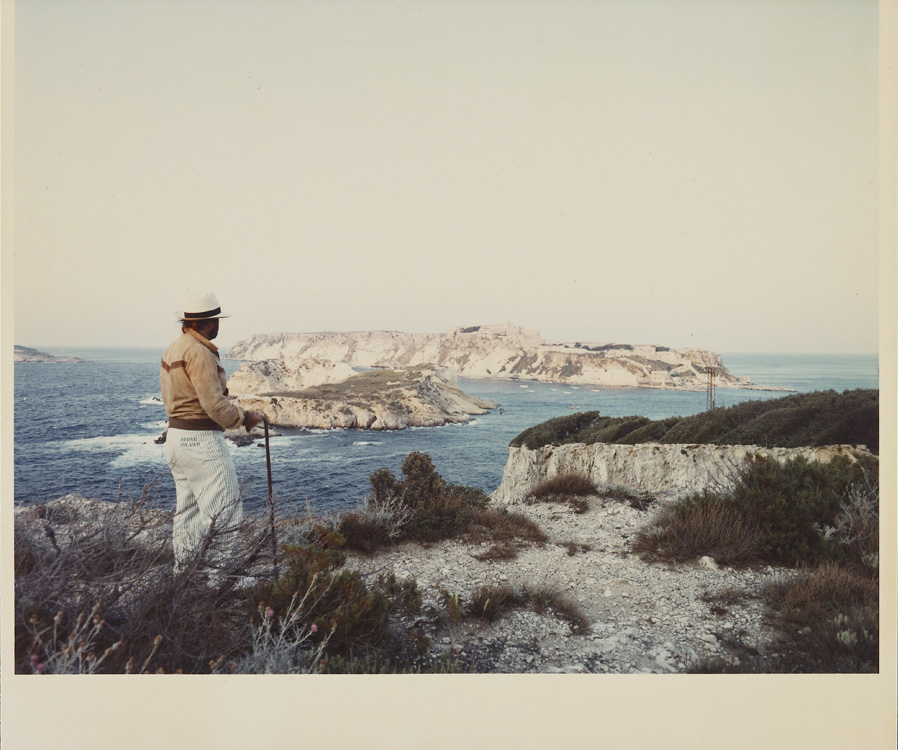

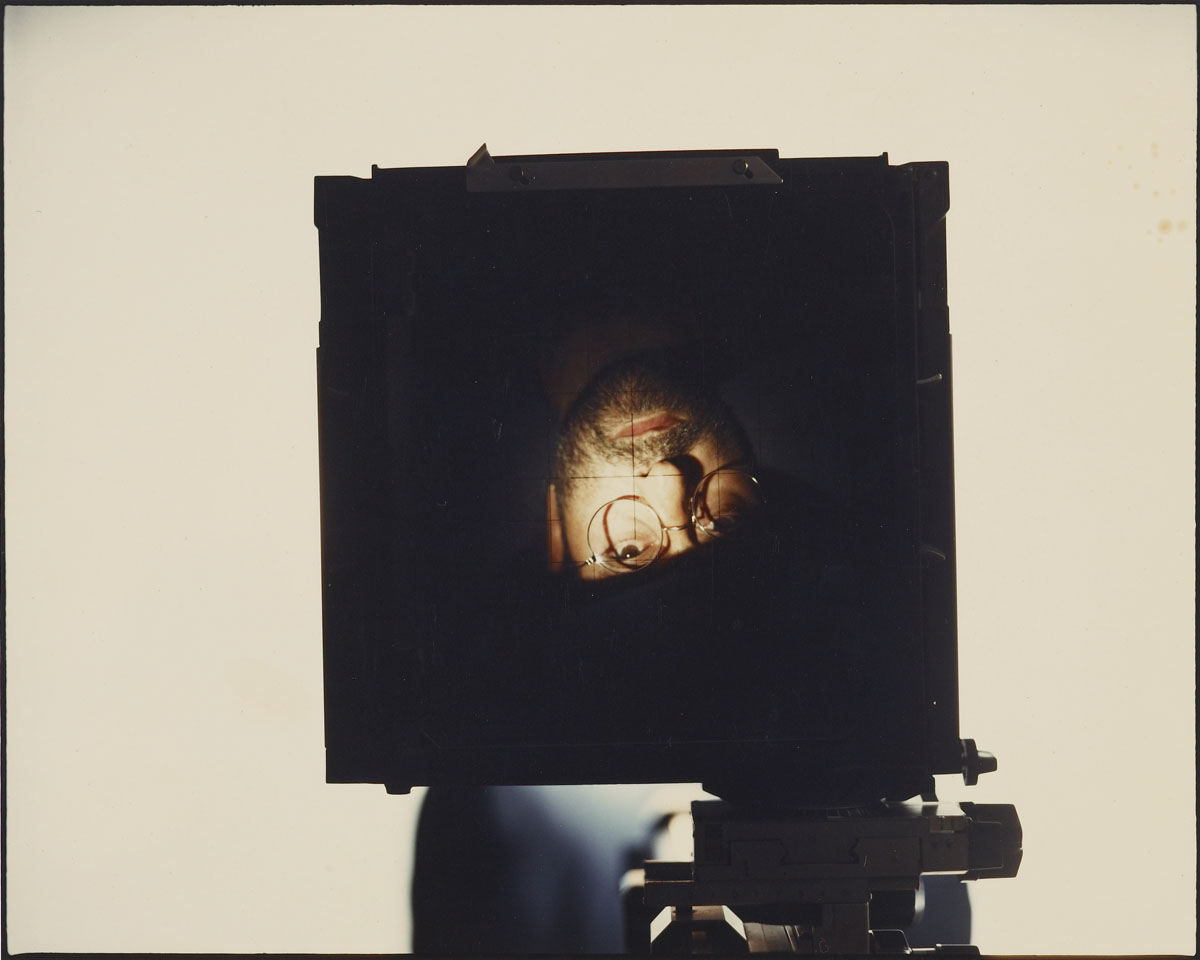

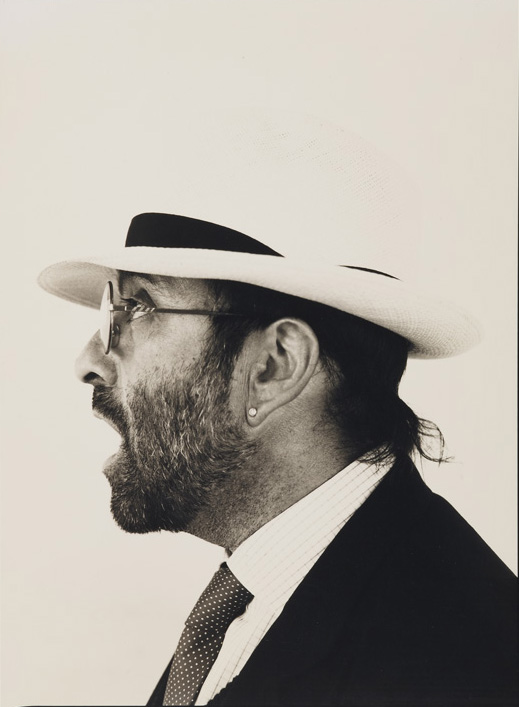


luigi ghirri
Luigi Ghirri.
Lucio Dalla.
L.G
L.D
L.G.
L.D.
L.G.
L.D.


